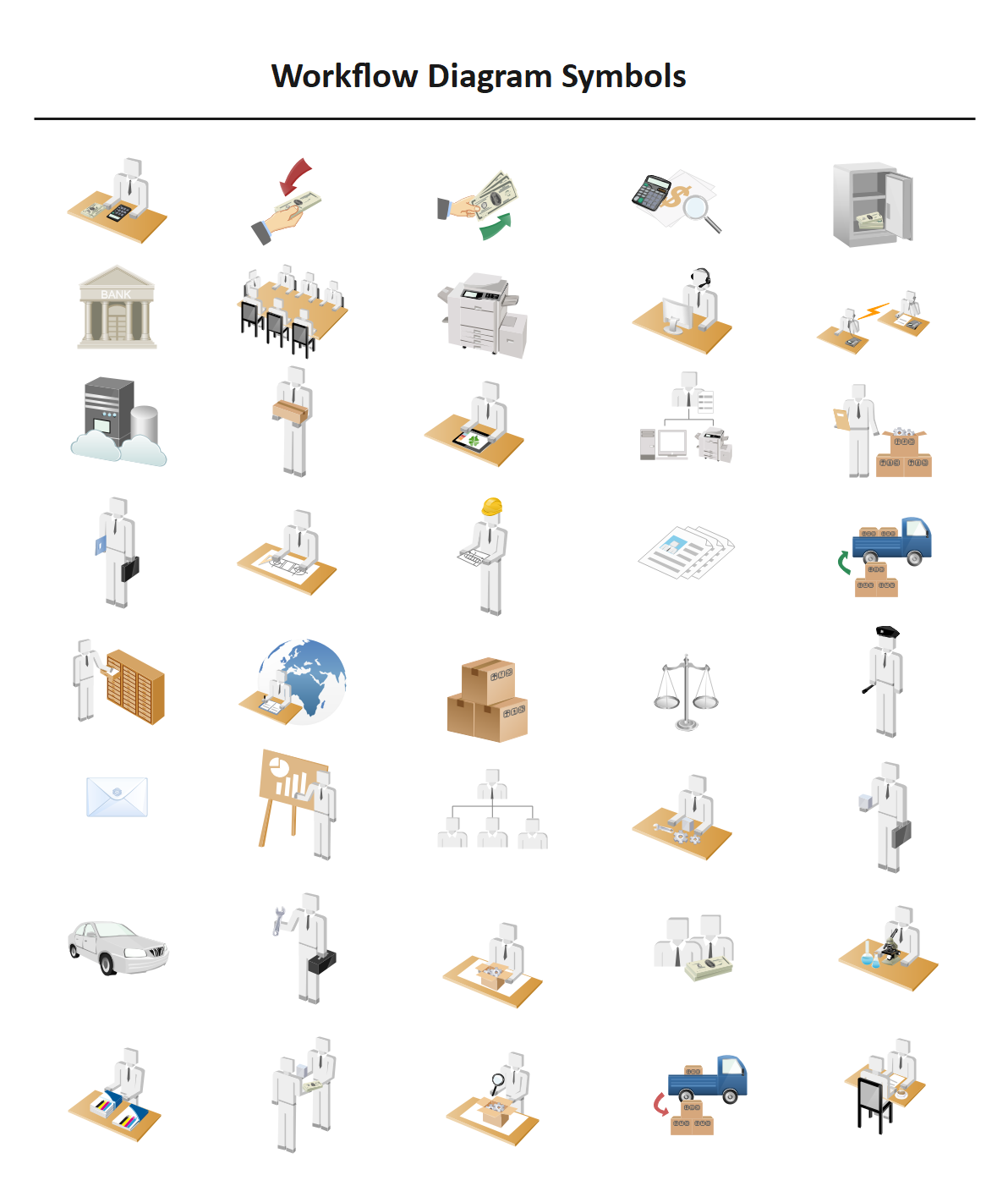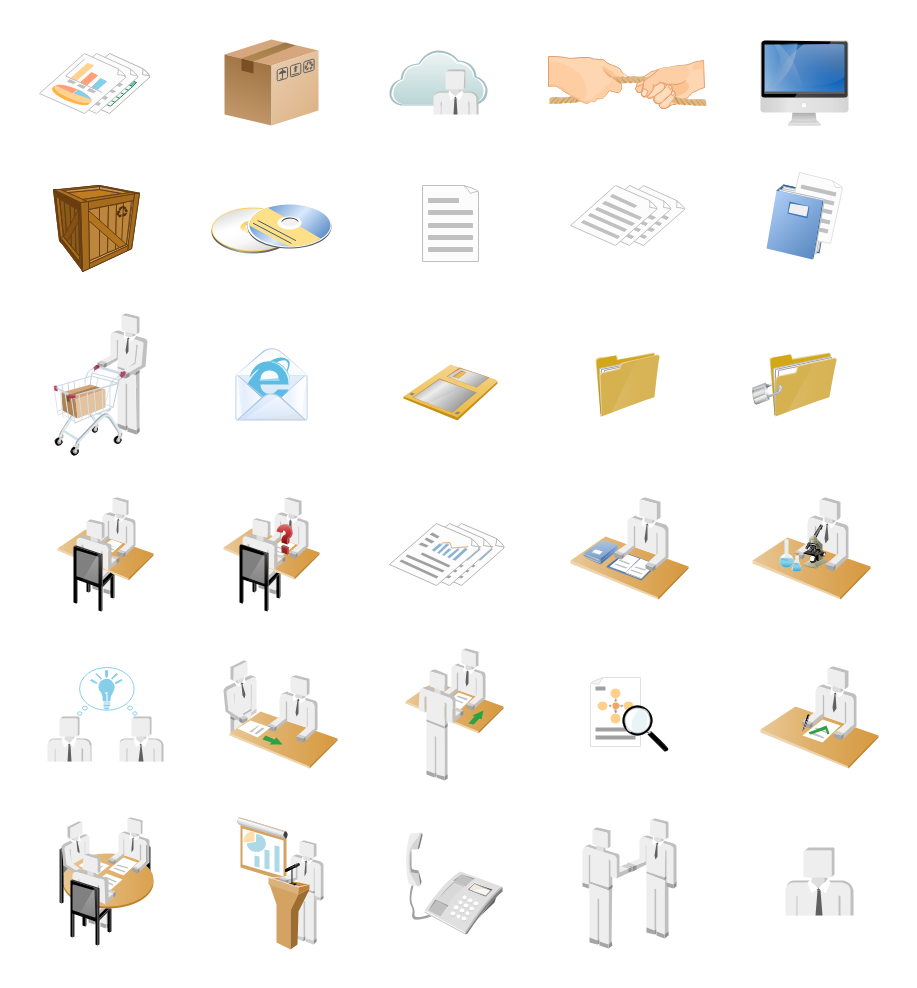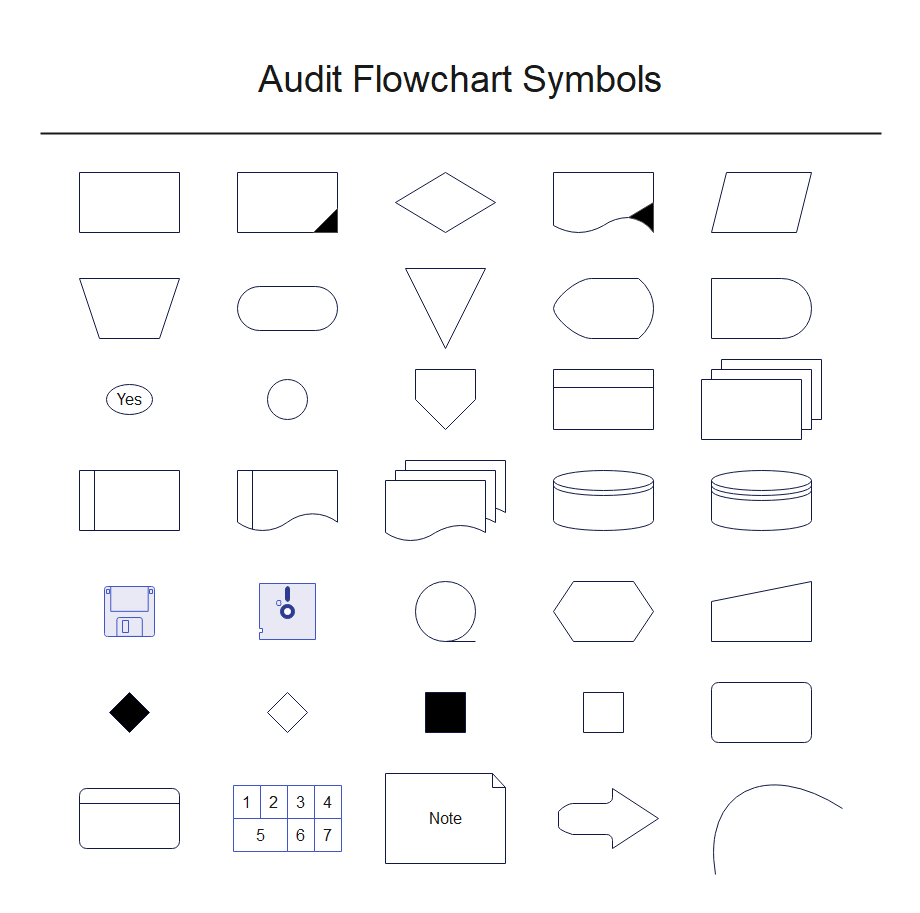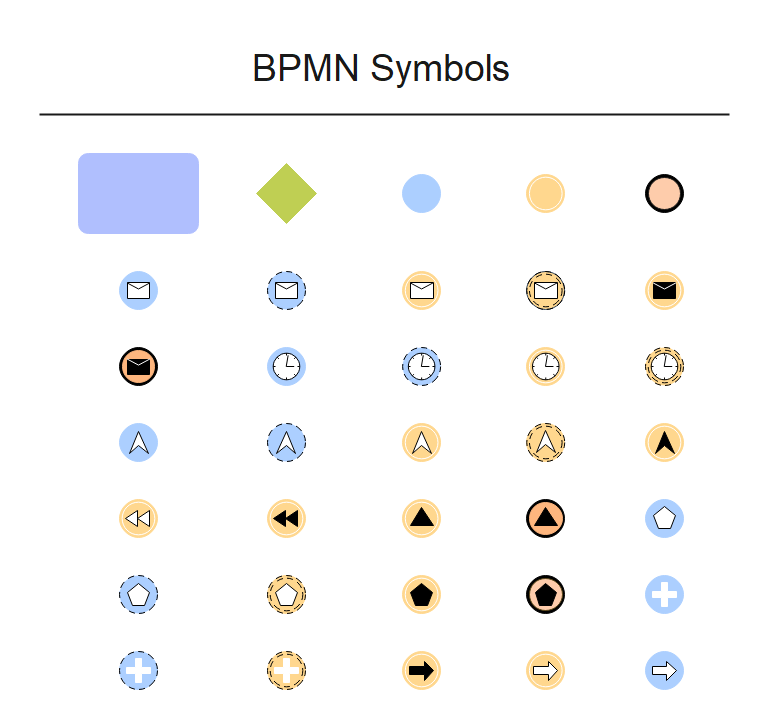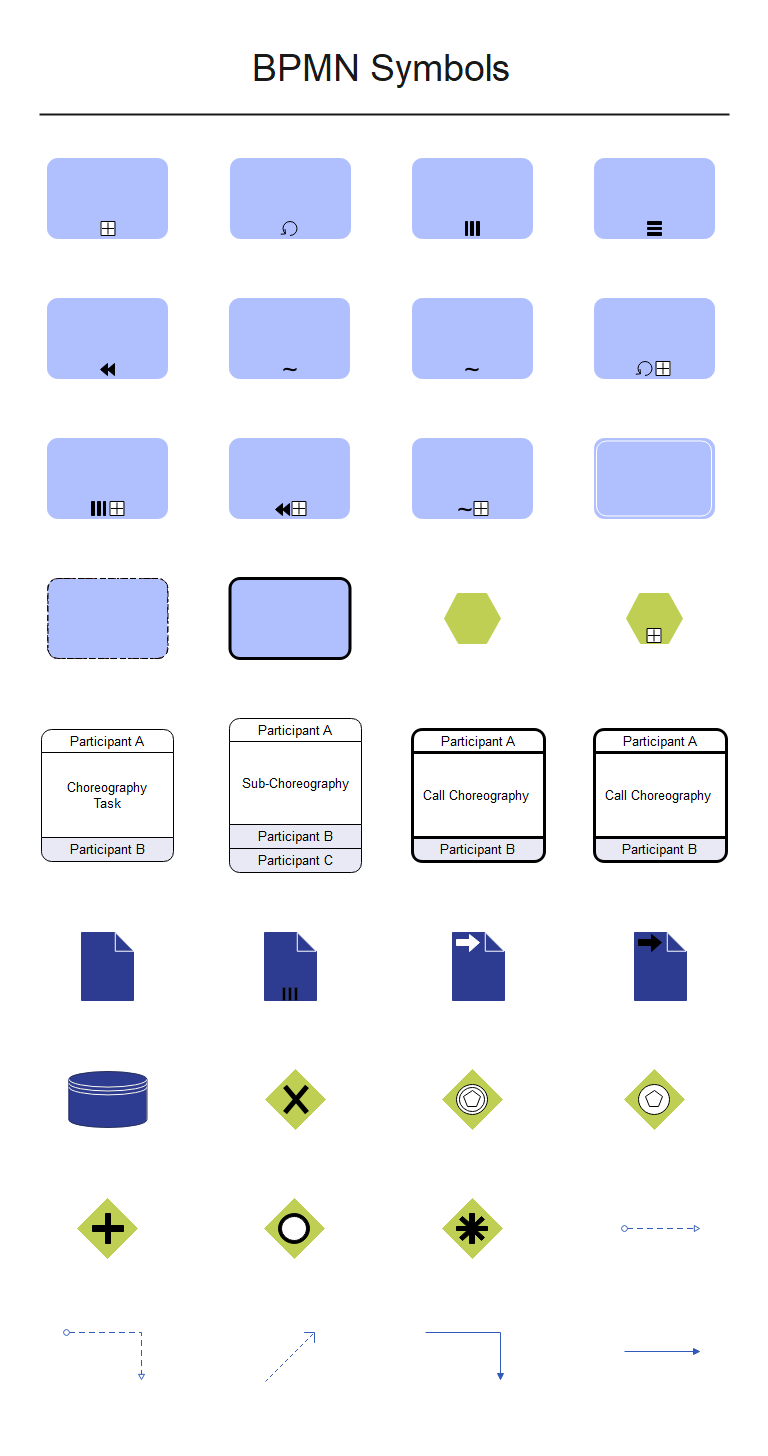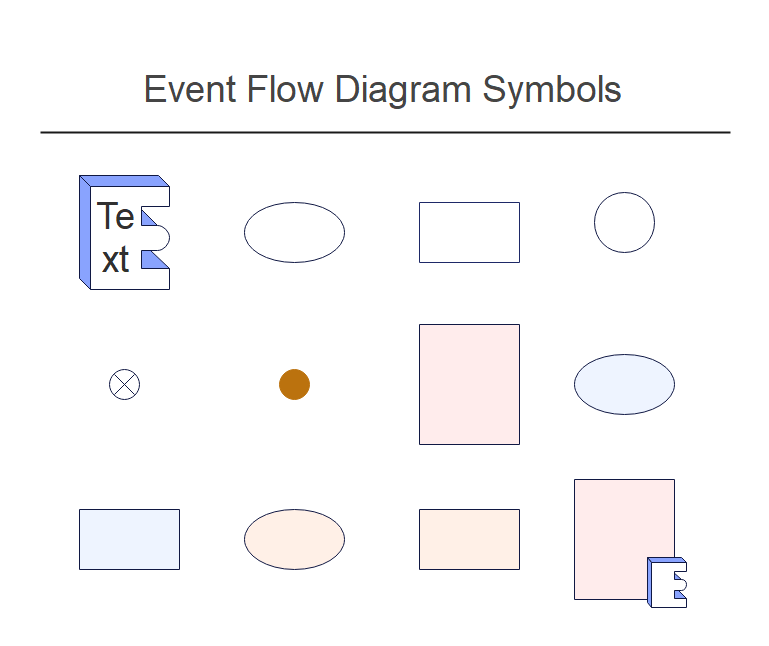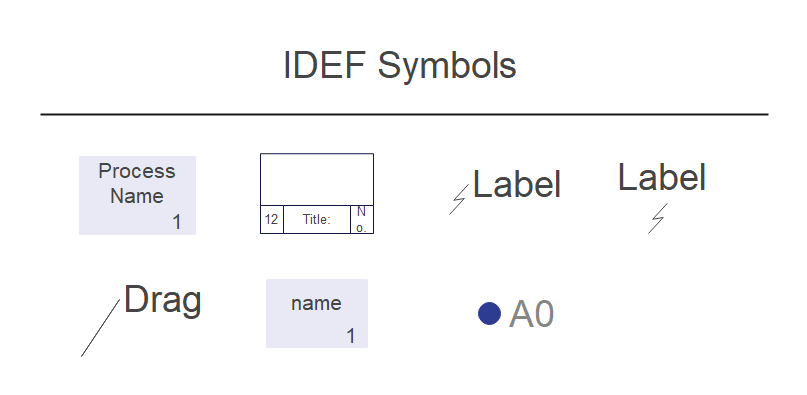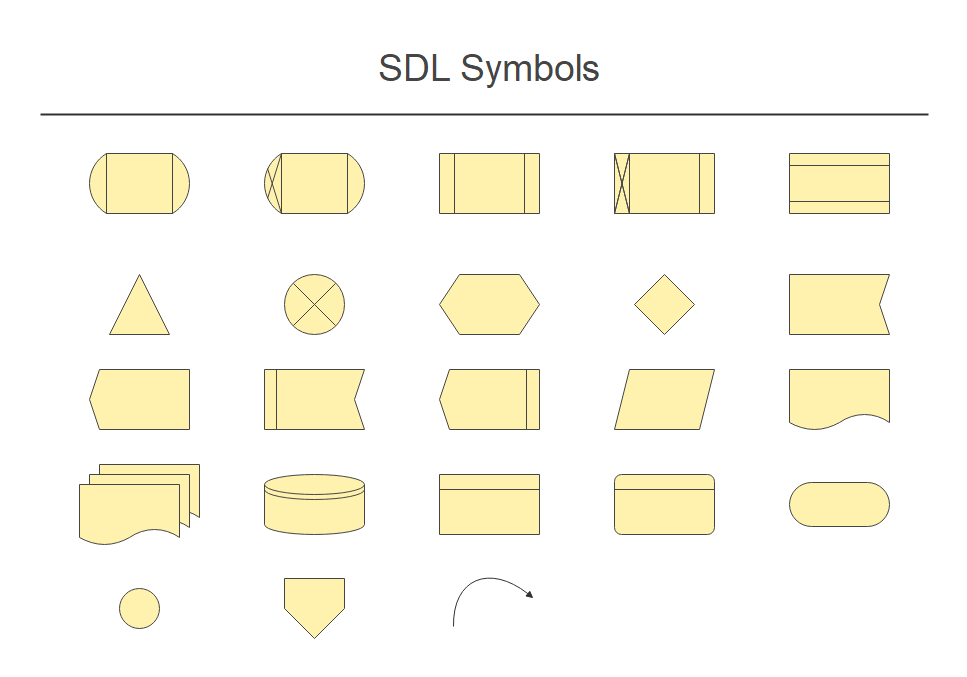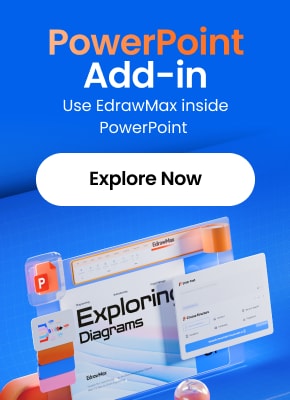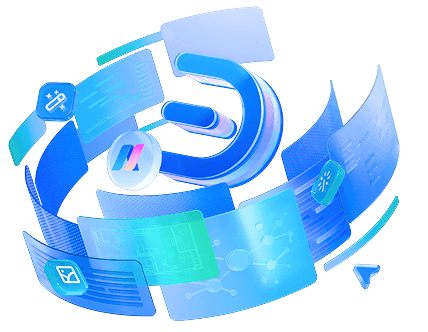Flowchart Symbols and Their Usage
Master Professional Flowchart Creation with EdrawMax
EdrawMax specializes in professional diagramming and visualization. This comprehensive guide covers everything about flowchart symbols and how to use them effectively. Start creating with our free version today!
Flowchart symbols are visual organizational tools that illustrate relationships between processes and decisions. For example, consider how a car operates: fuel input relates directly to engine performance. We represent the gas tank with an oval shape and engine operation with connecting lines. As fuel enters the system, engine speed increases, demonstrated through connected flowchart elements. Flowcharts are so intuitive that even those without graphic design experience can quickly master their creation.
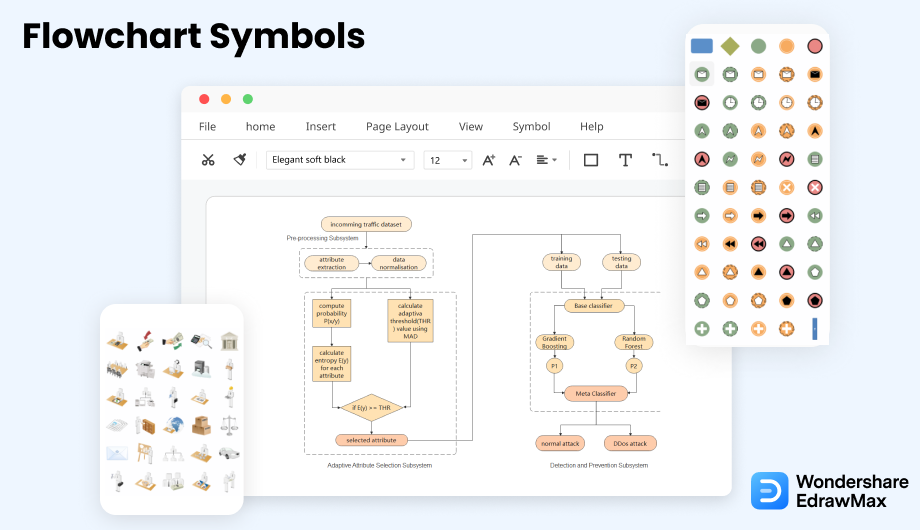
1. What Are Flowchart Symbols
Flowchart symbols visually represent the flow and logic between ideas, concepts, and processes. These symbols are used across various contexts including writing, print media, and advertising. Flowcharts serve multiple purposes: depicting manufacturing processes, presenting company historical information, explaining organizational structures, and outlining activity sequences.
Today, flowcharts primarily illustrate process flows and data flow diagrams. Their origins trace back to the 1950s with Alonzo Edensor's work developing the first system for graphically representing business processes. While earlier attempts at graphical process modeling existed, Edensor advanced the concept by using visual representations specifically for communication purposes.
Visual elements that represent processes, decisions, data, and connections within workflow diagrams.
2. Flowchart Symbols (Different Types)
This comprehensive list of flowchart symbols provides an overview of their meanings and applications across different categories. Each symbol type conveys specific information about processes, decisions, data flow, and organizational relationships. While standard names are used here, you may adapt terminology to suit your specific project requirements.
- 5 Basic Flowchart Symbols
- Process/Operation Symbols
- Branch and Control of Flow Symbols
- Input and Output Symbols
- Data and Information Storage Symbols
- Data Processing Symbols
- Cross-Functional Flowchart Symbols
- Workflow Diagram Symbols
- Audit Flowchart Symbols
- BPMN Flowchart Symbols
- Data Flow Diagram Symbols
- Event Flow Diagram Symbols
- IDEF Symbols
- SDL Diagram Symbols
2.1 5 Basic Flowchart Symbols
Flowcharts utilize various shapes to represent different process elements. Each symbol has specific meanings and appropriate contexts for use. Understanding these common symbols is essential for both reading and creating effective flowcharts. Here are the five fundamental flowchart symbols used in nearly every flowchart:
- The Oval or Pill Shape represents start/end points
- The Rectangle Shape represents a process step
- The Parallelogram Shape represents input/output operations
- The Diamond Shape represents decision points
- The Arrow Shape represents sequence flow direction
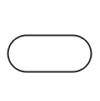
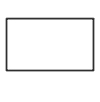
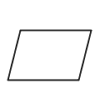
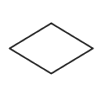
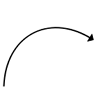
Source: EdrawMax
2.2 Process/Operation Symbols
Process/Operations Flowchart Symbols excel at describing operational workflows. A well-designed flowchart clearly shows processes from initiation to completion. These visual representations display the overall procedures required to achieve specific objectives. When uncertain about symbol selection for your process flow chart, these standard symbols provide reliable options for processing and output tasks.
- Process Symbol: Also known as action symbol, represents a process step
- Sub Process Symbol: Represents action sequences performing specific tasks within larger processes
- Predefined Process Symbol: Indicates steps comprising a complex process defined elsewhere
- Delay Symbol: Represents process delays that may impact costs or production timelines
- Preparation Symbol: Indicates setup requirements for subsequent process steps
- Manual Operation Symbol: Represents process steps requiring manual rather than automatic execution
- Parallel Mode Symbol: Indicates two or more simultaneous operations or process steps

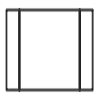
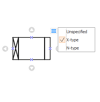
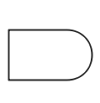
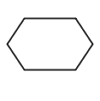
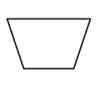
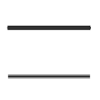
Source: EdrawMax
2.3 Branch and Control of Flow Symbols
These branching control symbols determine decision pathways within processes, typically represented by directional arrows. Control flow charts describe complex logical problems including decision-making algorithms and other problem-solving methods. They provide graphical representations of algorithms that solve specific problems through visual logic pathways.
- Decision Symbol: Indicates points where outcomes determine subsequent steps
- On-Page Reference: Connects separate processes within the same page
- Off-Page Reference: Connects processes across different pages with page references
- Merge Symbol: Indicates where multiple processes converge into one
- Extract Symbol: Indicates where processes diverge into parallel paths
- Or Symbol: Indicates process flow divergence into multiple branches
- Summing Junction Symbol: Indicates multiple branches converging into single processes
- Control Transfer Symbol: Indicates non-sequential process steps under specific conditions
- Annotation Symbol: Provides additional information about process steps



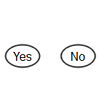
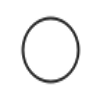
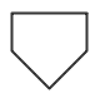
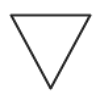
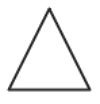
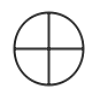

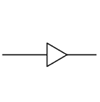
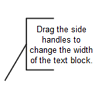
Source: EdrawMax
2.4 Input and Output Symbols
These flowchart symbols describe sequences that transform inputs into outputs. They show beginning and end points of processes in their execution order. Flowcharts can represent both automated and manual procedures, including sub-processes and specialized operations.
- Data(Input/Output) Symbol: Indicates information entering or leaving processes
- Document Symbol: Represents human-readable data like reports or printed documents
- Multi-Documents Symbol: Represents multiple documents within processes
- Display Symbol: Indicates information display points within process flows
- Manual Input Symbol: Indicates steps requiring user/operator information entry
- Card Symbol: Indicates data input via cards (rarely used today)
- Paper Tape Symbol: Indicates data storage on paper tapes (rarely used today)

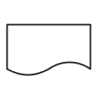
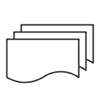
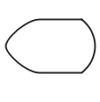
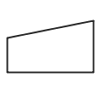
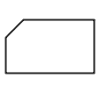
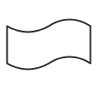
Source: EdrawMax
2.5 Data and Information Storage Symbols
Data storage symbols represent various information formats including structured, unstructured, raw, and digital data. Different information types can be stored in databases, text files, spreadsheets, or combinations thereof. The primary distinction between structured and unstructured data lies in organizational methodology. These symbols provide visual representations for data visualization and storage concepts.
- Stored Data Symbol: Indicates data storage locations
- Database Symbol: Represents searchable, sortable data storage
- Internal Storage Symbol: Indicates memory storage during program execution
- Sequential Data Symbol: Represents sequentially accessible data

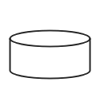
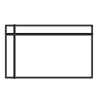
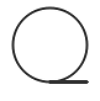
Source: EdrawMax
2.6 Data Processing Symbols
Data processing symbols are used to communicate data flow processes among people who may be working with computers but not computers themselves. People use data-processing symbols to communicate what they want and what will happen next. These diagrams help communicate process information in a concise way and in assisting others to understand the methods involved.
- Collate Symbol: AIndicates a process step that organizes data, information or materials into a standard format.
- Sort Symbol: Indicates a process step that organizes ata, information or materials into some pre-defined order.
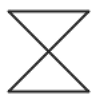
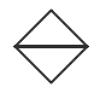
Source: EdrawMax
2.7 Cross-Functional Flowchart Symbols
A flowchart is described as "cross-functional" when the page is divided into different "lanes," describing the control of various organizational units. A unit appearing in a particular "lane" is within the power of that organizational unit. This technique allows the analyst to locate the responsibility for performing an action or making a decision correctly, allowing the relationship between different corporate groups with responsibility for a single process.
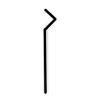
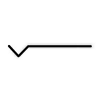
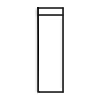
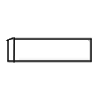
Source: EdrawMax
2.8 Workflow Diagram Symbols
A workflow diagram shows the relationships among different departments in a fixed work sequence, which means that one department needs to finish its job, so another department can continue the rest. As the workflow shows how your work is completed from start to finish step by step, the development and maintenance of these workflow relationships are very important for managers. Because by seeing how the business works from a top-down perspective, you can identify it’s potential flaws, weaknesses, and areas for improvement.
If you want to use these templates, you can click to download them. While The eddx file need to be opened in EdrawMax. If you don’t have EdrawMax yet, you could download EdrawMax for free!
2.9 Audit Flowchart Symbols
The following shapes are similar to the basic flowchart symbols but are specially used in the audit flowchart. And you can learn more audit flowchart knwoledge here.
You can click to get these symbols' template, and use it in EdrawMax for free!
2.10 BPMN Symbols
Pre-drawn BPMN symbols represent the start message, the throwing message, the start timer, and so on. These symbols aid in the creation of accurate diagrams and documentation. There are more BPMN knwoledge for you to learn.
You can click to get these symbols' template, and use it in EdrawMax for free!
2.11 Data Flow Diagram Symbols
The data flow diagram depicts the flow of data. Data flow diagram shapes include data process, center to center, multiply process, loop on center, data store, line curve connector, and others. There are more Data Flow Diagram knwoledge for you to learn.
You can click to get these symbols' template, and use it in EdrawMax for free!
2.12 Event Flow Diagram Symbols
Event flow diagram symbols in popular vector format help create professional-looking diagrams and documentation. There are more Event Flow Diagram Symbols knwoledge for you to learn.
You can click to get these symbols' template, and use it in EdrawMax for free!
2.13 IDEF Symbols
Special shapes, process flow, title block, N-type line, text block, 1 legged connector, forking connector, joint connector, bend connector, swing connector, node, solid connector, IDEFO connector, side text callout, and so on are all available in IDEF diagram symbols. There are more IDEF knwoledge for you to learn.
You can click to get these symbols' template, and use it in EdrawMax for free!
2.14 SDL Symbols
SDL diagrams are a type of diagram in which the graphical components of Specification and Description Language (SDL) are used to design object-oriented diagrams, model state machines in the communication, telecommunications, aviation, automotive, and medical industries, and create specifications and descriptions of behavior, data, and inheritance for interactive real-time systems, reactive systems, and distributed systems. There are more SDL Symbols knwoledge for you to learn.
You can click to get these symbols' template, and use it in EdrawMax for free!
3. Where to Find Flowchart Symbols
It would help if you had proper flowchart symbols to create an accurate flowchart access plan with details and a clear representation of each component. You can easily find flowchart symbols in the symbol library of EdrawMax.
You can easily find flowchart symbols in the symbol library of EdrawMax. EdrawMax gives you more than 26000 symbols that you can use to create a Flowchart or any other diagram. You can go and search for the symbols you want in EdrawMax and click on the Flowchart. Go to the flowchart category and use a simple drag and drop to add any symbol you want.
EdrawMax is the best resources for flowchart symbols, you can find hundreds of flowchart symbols here. Just drag and drop, you can create Flowchart easily.
EdrawMax
All-in-One Diagram Software
- Superior file compatibility: Import and export drawings to various file formats, such as Visio
- Cross-platform supported (Windows, Mac, Linux, Web)
4. How to Use Flowchart Symbols
You can download EdrawMax and follow these instructions to learn how to use flowchart symbols and easily create more flowchart symbols with EdrawMax.
4.1 How to Use Flowchart Symbols in EdrawMax
Instead of wasting time drawing the flowchart symbols or icons on paper, you should look for a way to design a Flowchart easily. EdrawMax is well equipped to design a Flowchart.
Step1 Login EdrawMax
If you are new here, you should use your Email to register EdrawMax, but if you're already the EdrawMax's user, you just need to login EdrawMax for free. Open EdrawMax select "Basic", and click "Flowchart", then open a new canvas or just open a built-in template.

Step2 Select Flowchart Symbols
Unlike physical drawing, EdrawMax helps to create a Flowchart easily. In the symbol section of EdrawMax, you will find over 260,000 vector-based symbols that you can use in your designs. In EdrawMax, you can find Flowchart symbols in Symbol Libraries on the left toolbar. You can click on the "+" option to open a new canvas to make your Flowchart. On the left side of the canvas, you will see a symbol library with many flowchart symbols. You can search for specific symbols in the search bar.

Step3 Drag and Drop
Once you find the proper flowchart symbols you want, just drag and drop the symbols to the canvas easily. Keep customizing by choosing the right symbols, proper scale or dimensions, and adding more details, like color, font, and etc. When completed your Flowchart, you can export your file or share your design effortlessly. Learn more Flowchart guide here if necessary.

4.2 How to Create More Flowchart Symbols in EdrawMax
EdrawMax provides you with thousands of symbols to create your diagram. Sometimes you want to use unique or personalized symbols in your diagram that are not in the library. EdrawMax gives you a simple solution to this problem. Follow these steps when you don't find the flowchart symbols you want or you wish to create your symbols to make your diagram.
Step1 Find Symbol Tool
If you can't find any symbol similar to the one you want, you can use the pencil tool, pen tool, and anchor tool to draw your personalized flowchart symbols. It is much easier to draw the symbol you want on EdrawMax instead of searching for the one that suits your requirements. You can also save your symbol in the library for later use.
- Select "Symbols" on the upper Toolbar;
- Use "Pencil Tool", "Pen Tool", "Anchor Tool" to create garden symbol from very beginning;
- Choose "Union", "Combine", "Subtract", "Fragment", "Intersect", "Smart Shape" to make your symbols.
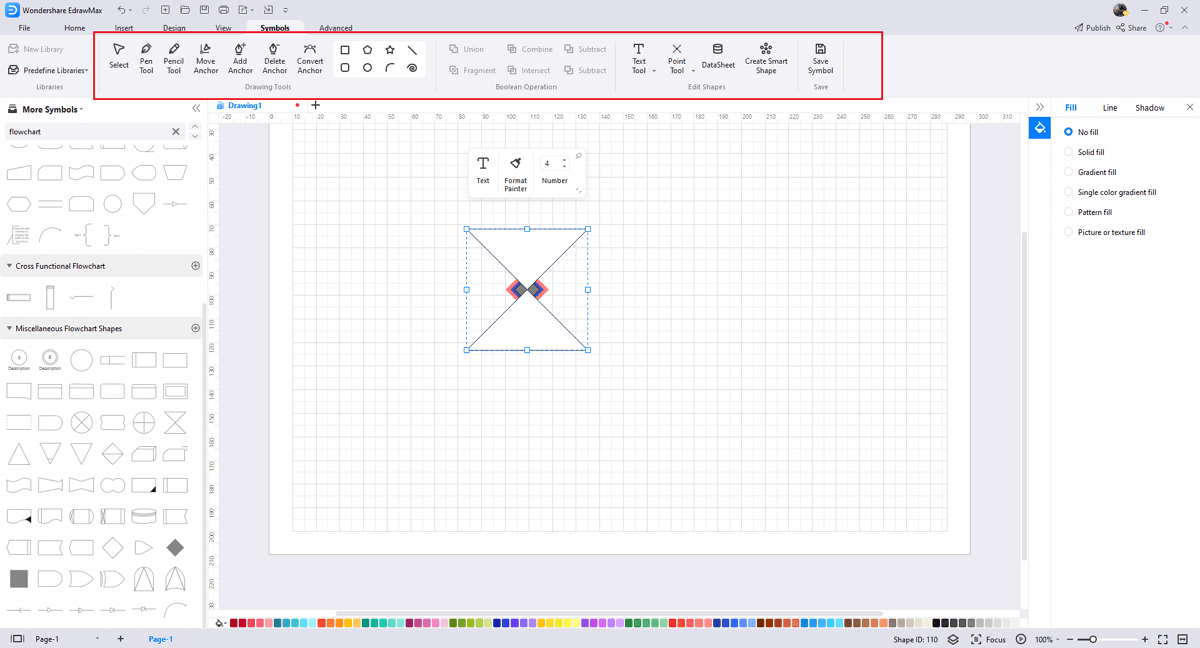
Step2 Create flowchart Symbols
When you create a Flowchart, make sure that the size, design, and other attributes of your icon go along with other flowchart symbols. Follow these steps to draw perfect flowchart symbols.
- Make your flowchart and infrastructure icon square symbol in a circular shape.
- You can use various pen styles to make different parts of your symbol.
- Make sure that the illustration inside the shape does not overlap it.
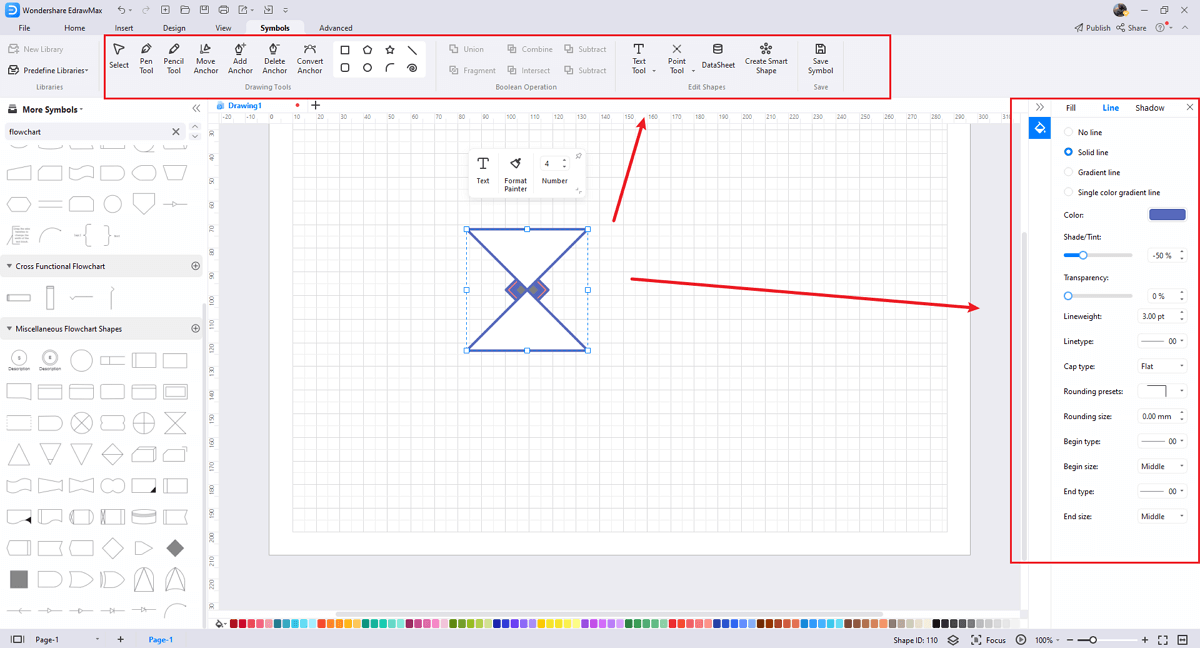
Step3 Import flowchart Symbols
Except for creating new flowchart symbols in EdrawMax, you can import flowchart symbols from your end. Find "Insert" on the top navigate toolbar, and import images to turn into symbols. Or click the thrid option of the right toolbar to insert images faster.
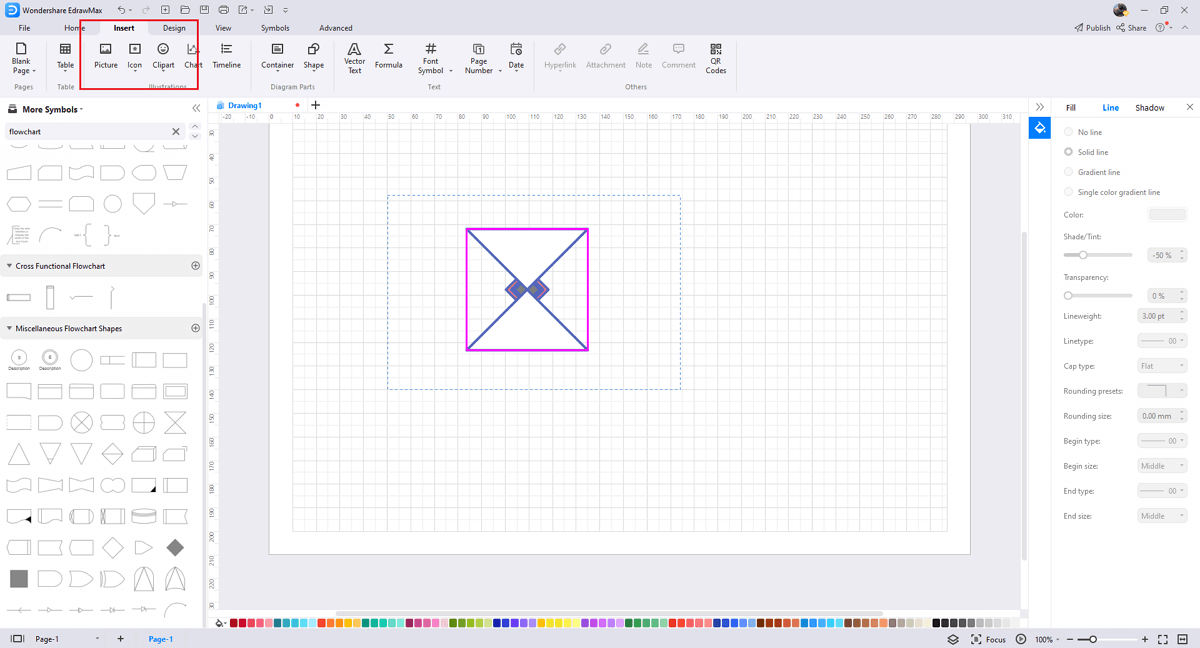
Step4 Save to Your Symbol Libraries
Once you completed your flowchart symbols design or import your symbol images, you should still click "Symbols" on top, and choose "Save Symbol" to your symbol Libraries. Or you can click "+" in My Library on the left toolbar. Learn more about how to draw a Flowchart or design a flowchart from this How to Make a Flowchart (4 Easy Methods) here.
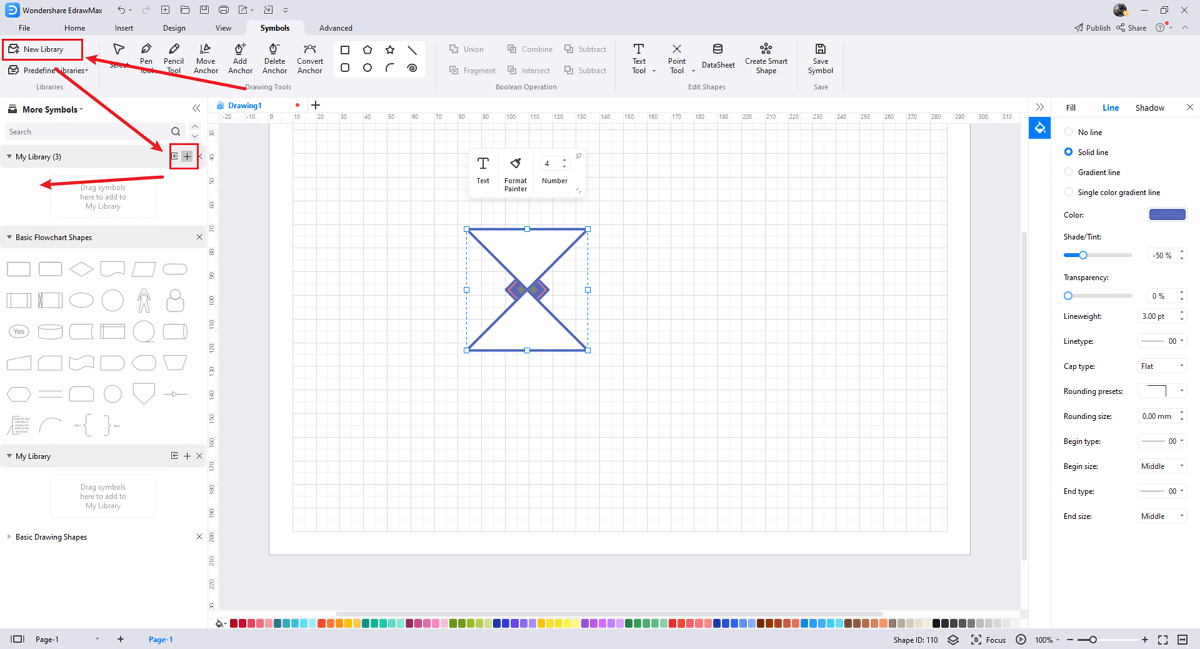
5. Flowchart Examples & Templates
There are lots of templates and flowchart examples to choose from. Using a flowchart template can save a lot of time in composition, and you can refer to the advanced points of other people's diagrams. You can view these pretty flowcharts to consider how to make your own. If you want more, you can get them from Flowchart Examples.
Example 1: Engineering Flowchart
A flowchart depicts the sequential steps of a process as well as the decisions that must be made in order for the process to function.
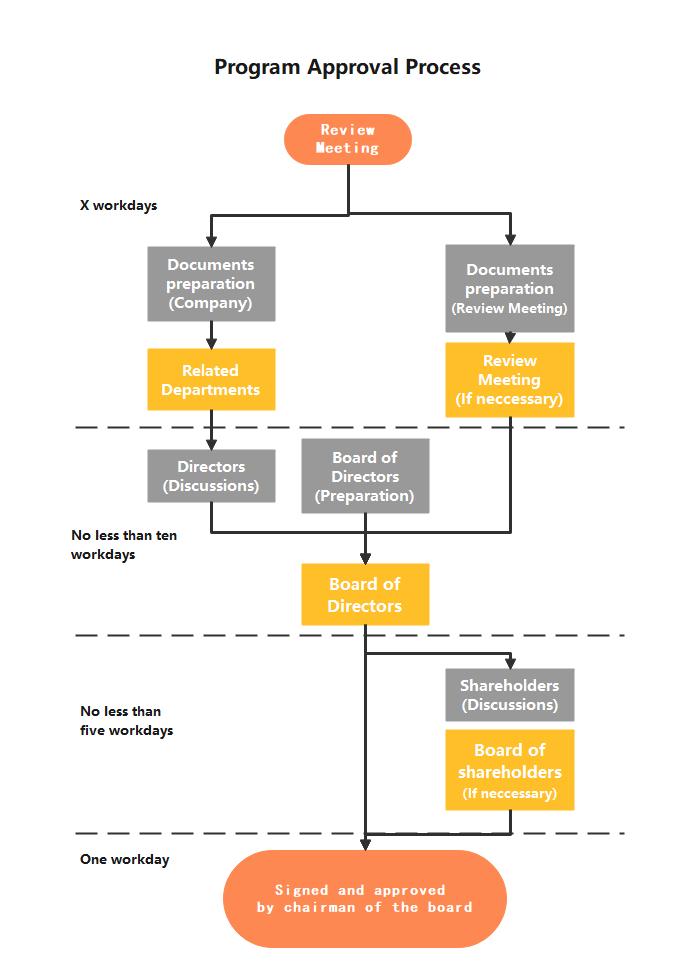
Example 2: Swimlane Flowchart
A swimlane diagram is a flowchart that depicts who is in charge of what in a process. A swimlane diagram, which employs the pool lane metaphor to improve clarity and accountability, places process steps within the horizontal or vertical "swimlanes" of a specific employee, work group, or department.
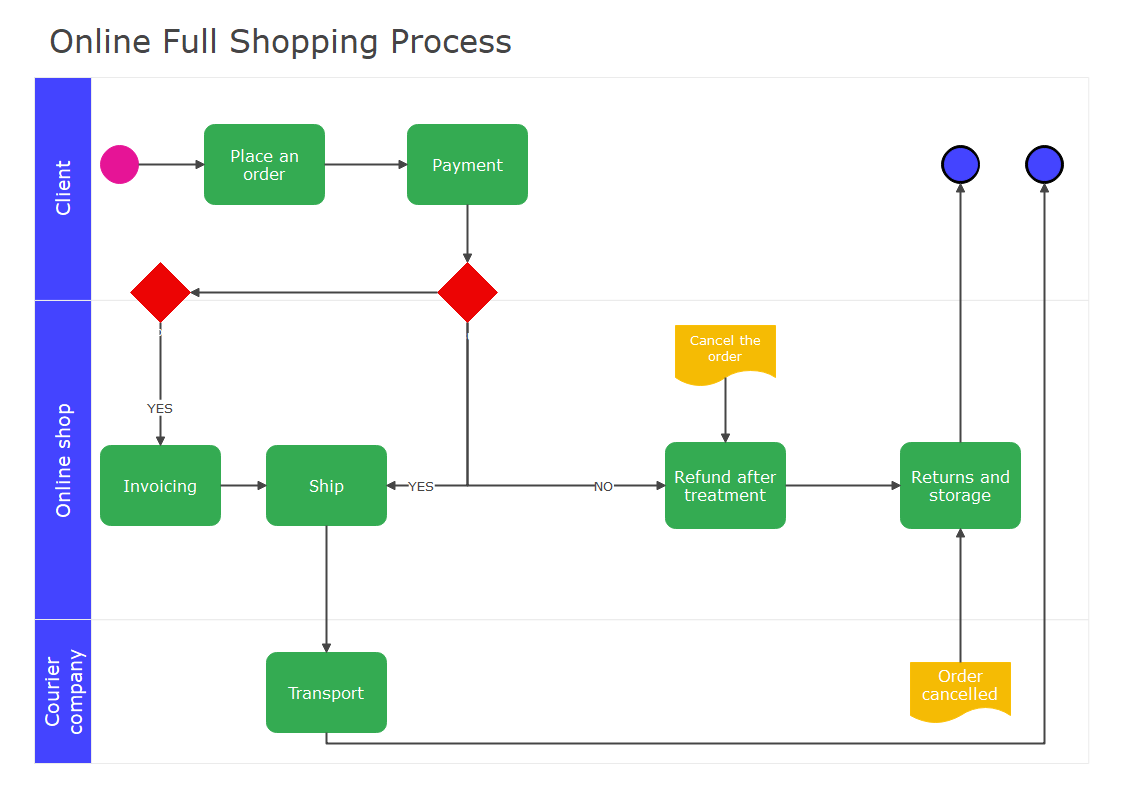
6. Flowchart Example & Templates
EdrawMax allows you to create multiple flowcharts at once. For instance, you can open a new diagram while running the previous one. Or you can save several diagrams and return to any of them whenever needed. You may ask why do you need such a sophisticated tool instead of creating flowcharts using some standard software? Simply because with EdrawMax, you will save lots of time and energy when creating diagrams, and the results will be much better.
Key Features of EdrawMax:
- EdrawMax comes with free Flowchart examples & templates that are 100 percent customizable;
- The built-in vector symbols let you easily add Flowchart components to your design;
- You can easily share the Flowchart design with your team and see the live revisions made by your team;
- EdrawMax lets you export the file in multiple formats, including MS Docs, PPTX, JPEG, PNG, PDF, and more;
- EdrawMax has a strong community of 25 million users who update the template community with their creative projects;
- EdrawMax is considered the best tool for beginners and professionals because of the user-friendly dashboard and easy drag-and-drop feature.
7. Final Thoughts
Flowcharts represent cause and effect relationships used in business, management, science, technology, engineering, and mathematics. They are usually based on the idea that if something occurs, then something else will follow. They are commonly used to show how decisions lead to events, which lead to outcomes. Many people struggle with using free software. When it comes to drawing flowcharts, one should understand flowchart symbols first.
Before creating a flowchart , it is better to consider your needs and make a good drawing. Also, specify the access control and develop new flowchart procedures. EdrawMax is the best free flowchart access plan maker that gives you free symbols and templates to make your diagram. Its fast drawing and easy symbol import feature make it the prime choice for professionals.

Flowchart Complete Guide
Check this complete guide to know everything about flowchart, like flowchart types, flowchart symbols, and how to make a flowchart.
